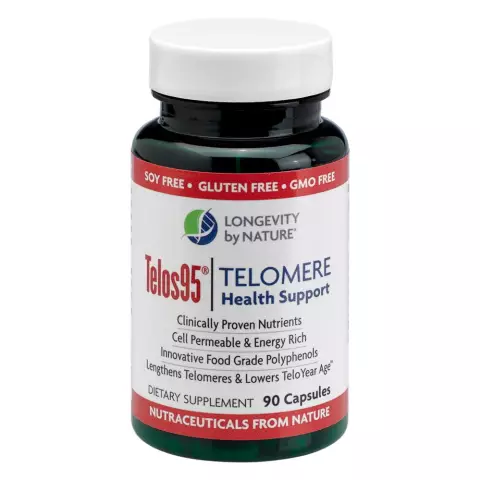- Author Rachel Wainwright wainwright@abchealthonline.com.
- Public 2023-12-15 07:39.
- Last modified 2025-11-02 20:14.
8 health benefits of laughter
Have you heard that laughter prolongs life? Researchers have not yet been able to establish a direct link between longevity and sincere fun, but several facts supporting the beneficial effect of laughing on health have been clinically proven.
Salvation from depression
We live in an era of stress. Almost everyone suffers from family or work problems, fears, dissatisfaction or overwhelming responsibility. Against this background, neuroses, sleep disturbances and depressive states develop. Many people are able to cope with this only by taking antidepressants regularly.
It has been found that laughter reduces the production of adrenaline and cortisone, hormones that accompany every stressful situation. And for the body to begin to release endorphins into the blood, even a "duty" smile is enough. The fact is that with characteristic loads on the muscles of the face, impulses are sent to the brain, activating the production of "hormones of happiness". Scientists say that just a minute of healthy laughter is comparable to a 40-minute relaxation session in terms of its effect on the nervous system.

Source: depositphotos.com
Skin rejuvenation
Contrary to popular belief, smiles have not yet added facial wrinkles to anyone. On the contrary, reflecting positive emotions, the muscles of the face do the work that acts as a massage, increasing blood flow to the skin and increasing its hydration and nutrition.
In people prone to giggle, the skin of the face, even at a very old age, retains freshness, elasticity and a healthy color.

Source: depositphotos.com
Strengthening immunity
It has been proven that laughter increases the level of immunoglobulin A in the blood, which plays an important role in protecting the mucous membranes from pathogens.
Doctors say that merry people are much less susceptible to seasonal infections and easier than gloomy people to cope with the most severe ailments, including cancer. It is not for nothing that clowns, both professional and specially trained volunteers, regularly perform in most children's hospitals in the world. They not only help children who are deprived of normal communication feel less left out. The consequence of this work is an improvement in the condition of young patients and an increase in the number of favorable prognosis.

Source: depositphotos.com
Treatment of the heart and blood vessels
It has long been noticed that among patients suffering from pathologies of cardiac activity, people are overly irritable and even gloomy, not inclined to giggle.
In terms of its effect on the cardiovascular system, laughter is similar to active physical exercise or walking in the fresh air. Just a few minutes of fun will normalize blood pressure by lowering or increasing it by 10-20 mm Hg. Art. In addition, laughter helps to maintain and repair endothelial cells - the tissue that lines the cavities of the heart and the inner surface of blood vessels.

Source: depositphotos.com
Reducing pain
In this case, the beneficial effect of laughter is associated with the increased production of endorphins, which affect the nervous system like anesthetics. It is clinically proven that sincere laughter can relieve even severe pain for up to two hours.
In addition, when laughing, a person uses a number of muscles, which is similar to active massage. Thus, the tension of the muscles of the neck and upper back is relieved, the increased tone of which often causes obsessive headaches. Laughter in this case, like medicine, helps to get rid of discomfort.

Source: depositphotos.com
Respiratory training
In moments of fun, a person's lungs do not function as usual: the so-called laughing type of breathing is realized, which is characterized by an alternation of a long inhalation and a short, energetic exhalation. As it turned out, such movements not only help cleanse the respiratory system from phlegm, but also accelerate gas exchange in the lungs, making it more complete.
Laughter is a great workout for your chest muscles. It relieves the state of indecision and timidity inherent in people who have a predominantly shallow type of breathing.

Source: depositphotos.com
Body improvement
Healthy laughter is similar to aerobics in the way it uses energy. It makes the muscles of the chest, neck, abdomen, back and even legs work. For 10-15 minutes of such "exercises", as many calories are burned as are contained in 100 g of chocolate, and the presence of a famous comedian at an hour-long concert is comparable to a running workout of a similar time.
For a modern person suffering from a clear excess of absorbed calories and a lack of physical activity, laughter is no less useful than exercising in the pool or gym.

Source: depositphotos.com
Increased mood
We laugh with positive emotions. But there is also a reverse process: a smile improves mood, increases vitality, and increases efficiency. Psychotherapists often advise their patients to smile in front of a mirror in order to reduce anxiety levels and learn to respond less harshly to life's troubles.

Source: depositphotos.com
Do not forget that laughter is the most powerful means of communication. It brings people closer, reduces the level of aggression, promotes the development of tolerance.
Laughing is what makes us human to a great extent. It is not for nothing that such wonderful things as friendship, love, the joy of creativity make us smile. And considering how useful laughter is, we can safely recommend it as the most harmless and pleasant remedy for many health problems.
YouTube video related to the article:

Maria Kulkes Medical journalist About the author
Education: First Moscow State Medical University named after I. M. Sechenov, specialty "General Medicine".
Found a mistake in the text? Select it and press Ctrl + Enter.






